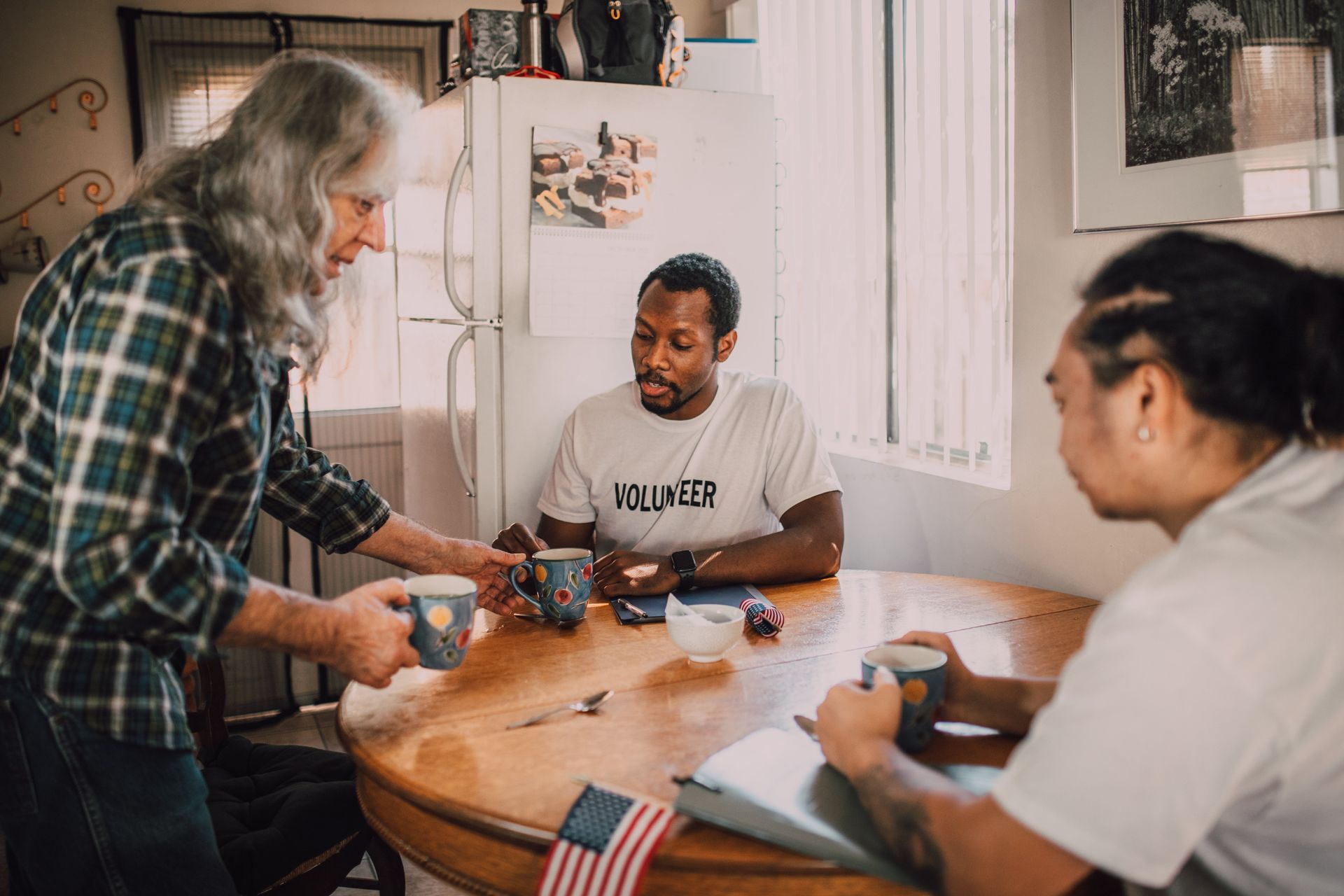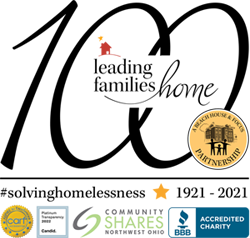Helping Hand: Tips for Taking Action in Your Local Community
If you have a cause you believe in, getting involved in your local community can often feel like an uphill battle. Fortunately, whether you’re interested in social justice, neighborhood safety, voter registration, environmental awareness or something else entirely, there are a few simple strategies for getting involved.

Volunteer Time
The easiest, simplest and most viable way to engage with a movement you care about is to offer your assistance as a volunteer. This is as simple as reaching out to Leading Families Home or checking the volunteer opportunities page. Some positions may require additional training, or you may need onboarding, but this is typically an avenue available to everyone ages 18+, and sometimes can include younger people.
Find Local Events
If you’re unsure if you want to commit to volunteering on a regular basis, local events provide a great way to get a sense of the organization, meet key figures, gain experience and help out on a limited basis. To learn when events are taking place, keep a look out for newspaper announcements, local and regional online directories, social media posts (especially on the group pages), local shops and word of mouth. Keeping contact with organization members can often help to get you invited into group chats.
Make Phone Calls, Invitations, or Newsletters
Handling the outreach for an organization can be a great way to help them out, and can often be accomplished with nothing out of pocket. For example, handing out invitations to an event is a tried-and-true way to raise awareness and build connections in your community. There are plenty of no-cost online resources to help. You can make an invitation fusing time-tested templates, so you can get creative at no cost. That way, all you have to donate is your time and effort. Plus, actions like these can often be completed from the comfort of your home with the use of just your smartphone.
Donate Supplies or Other Resources
Second to time, the next best thing you can commit to a valuable cause is resources. Donating is usually straightforward and isn’t restricted to just money, plus many charities will come to you for certain items. Depending on the organization, your clothes/household objects could be useful, as are bed linens, books, cleaning supplies and electronics. Make sure that anything you hand in has functional value, works as intended and is clean for the next user.
Organize Something New
If the events in your local area are not to your liking, it’s possible to organize your own. If you have a cause that is near and dear to your heart, an awareness walk, for instance, can be beneficial and is a beginner-friendly way to get involved. You need to identify an area with high walkability and visibility for the route. Then come up with a theme and plan out how fundraising will work.
Also, keep in mind that, as The National Breast Cancer Foundation notes, the best practice for fundraising is to reach out to a charity and ask if they’d be interested in collaborating. This way, you’ll receive ground support, generate more interest, and benefit from the expertise of those involved.
Form a Nonprofit
Taking this a step further, you may decide you want to create an organization of your own. This is rarely straightforward, however, and you need to be cognizant of nonprofit organization advantages and disadvantages. While a nonprofit status allows benefits like grant eligibility and limited liability, the process to become a nonprofit is time-consuming. Plus there are other considerations, like public transparency and the tedium of grant applications. Becoming a nonprofit is worthwhile for most organizations, but first examine the pros and cons carefully.
Be a Voice on Social Media
Although less effective than ground support, social media advocacy is alive and well. You can learn some content optimization concepts to help the organization build online engagement. And, if you are able to write in a balanced, refined and sophisticated manner, your opinions can often hold plenty of weight and attract support for your movement.
Start by cleansing your feed of any accounts who you feel pollute your feed and instead try to follow relevant influencers and, crucially, members of the opposite faction. If you can maintain decency and provide a reasonable argument, you may find members of your community are drawn to you.
When it comes to taking action in your community, turning up is half the battle. With feet on the ground and a cause that’s worthy, you’ll soon find you’re making a difference and seeing the effects of your hard work.




